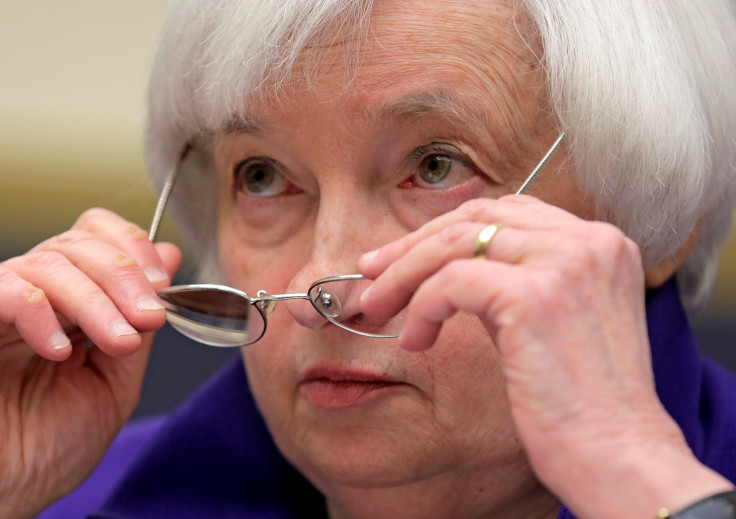How Does Trump's Election Win Affect The Fed Interest Rate Increase? Analysts Lower Expectations For A Hike

Financial markets responded with startling volatility to the Nov. 8 election victory of Republican Donald Trump, but what does his win mean for another major facet of the American economy—the federal funds rate?
The Federal Reserve chair Janet Yellen announced on Nov. 2 that the central bank would not increase its target for the interest rate at which commercial banks lend to one another in the short term, following an identical delay announced at the end of September.
Prior to Tuesday night, analysts' had high expectations for a hike at the conclusion of the Fed’s next meeting on Dec. 14. In October, for example, traders forecasted the chances of an increase following the Fed’s December meeting to be about 61 percent, according to Bloomberg.
But on Wednesday, those estimates changed. An average of expectations from analysts surveyed by the CME Group projected a 76 percent chance of a hike to between 0.50 and 0.75 percentage points, but the average slid down to 71.5 percent by Wednesday afternoon.
“With the violent reaction being seen in financial markets, there’s a good chance that a rate hike from the Federal Reserve is less likely in December,” Mark Hamrick, a senior economic analyst at the consumer financial services firm Bankrate, said in a statement. He added that, though the Fed continues to push for a “normalization” of interest rates, above their post-crisis stimulus levels, Trump’s victory means “we live in times that are anything but predictable.”
The Fed attributed its twin decisions in September and November to inflation levels below the target rate of 2 percent and a jobless rate above the full employment level of 4.8 percent, despite the American economy’s exhibiting its most rapid growth rate in two years.
Oil prices, a key influencer of the inflation rate, dove as much as 4 percent in the hours after Trump became the winner before recovering to their previous, albeit still relatively low prices Wednesday afternoon.
Under Trump, however, job growth is expected to fall to less than two-thirds of what it would have been under current law. Additionally, his immigration policies could spell disaster for the blue-collar service economy and, according to analysis by the nonpartisan Tax Policy Center, the president-elect’s tax law proposals would likely cause the deficit to skyrocket and negatively affect gross domestic product (GDP) growth.
In his victory speech on Wednesday, Trump sought to paint a different picture.
“We have a great economic plan,” he told supporters in New York City. “We will double our growth and have the strongest economy anywhere in the world. At the same time, we will get along with all other nations willing to get along with us. We will be.”
But market veterans certainly weren’t buying his pledge to maintain an economic climate in which the Fed could effectively tighten its monetary policy framework. Hamrick mused that “so much is up in the air with respect to the Federal Reserve.” Robert Shapiro, a former Bill Clinton advisor and undersecretary of commerce for economic affairs posited that the murky U.S. trade relations outlook—job numbers and debt aside—may be enough to scare the Fed away from removing its stimulus measure anytime soon.
“Look, the markets have made it clear that a Trump presidency would introduce very substantial uncertainty and consequently spook the market,” Shapiro told US News. “If the Fed was looking at the prospect of a trade war with China and Mexico starting Jan. 20 or so, I think it would certainly affect their decision making.”
© Copyright IBTimes 2024. All rights reserved.






















